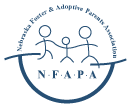Required Training for ALL Nebraska Foster Parents
Human Trafficking Training
Nebraska Foster Parents are required to take a Human Trafficking Training. This training is offered on the Health & Human Services Website at: https://dhhs.ne.gov/Pages/Human-Trafficking-Training.aspx
You can watch the "Preventing Human Trafficking for Foster Parents" video in English or Spanish and then take the Post Test (also available in English or Spanish) to receive credit. Be sure to list your full name (include your spouse's name if you are watching it together!) before you submit. No certificate will be given. Please screen shot that you passed the test and send it to your pre-service instructor or licensing worker. Be sure to include the date you completed the training.
In the "Preventing Human Trafficking for Foster Parents" it references a video from Withelma "T" Ortiz Walker Pettigrew, a survivor of sex trafficking. Please see the segment below.
Sex Trafficking & Foster Care Kids
Safe Kids Nebraska Car Seat Training
Nebraska Foster Parents should complete the Safe Kids Nebraska Car Seat Training. You can access it on the Health & Human Services Website. You will receive a certificate once completed and you should give it to your instructor if attending pre-service training or your licensing worker.
Reasonable Prudent Parent Standards (RPPS)
Growing up in foster care/out-of-home placement has often meant not having access to typical life experiences for youth that are an essential part of childhood and adolescence. These activities and experiences can range from hanging out with friends to attending school dances and participating in sports and learning skills needed to transition to adulthood. The Preventing Sex Trafficking and Strengthening Families Act was passed by the United States Congress in Sept 2014 and is designed to promote the safety, permanency, well-being, and normalcy of youth in foster care. Several provisions of the Act are focused on ensuring that youth in foster care have access to these same childhood experiences as their “non-foster” peers.
Reasonable and Prudent Parenting helps get at normalcy as it pertains to foster parents and facilitating staff exercising their best judgment as it relates to youth’s activity involvement, approval, etc. Please go to https://cip-dhhs.ne.gov/redcap/surveys/?s=XAL873K998AM7H89 and watch the video, submit your responses and receive a certificate. This video is approximately 30 minutes long. Send your certificate to your pre-service trainer or licensing worker.
Sexual Abuse Prevention Training
Go to the NTDC website https://ntdctraining.org/training-for-families/right-time-training-for-families/.
- This is the “Right-Time Training for Families” training page. Scroll down to the Right-Time Themes.
- Select “Sexual Trauma”. Select “Access Course”.
- Enter your details to log in. If you have not made an account, you will need to make one. It is free. Be sure you make separate accounts if you are a couple as there are multiple trainings you can complete over time.
- Once you have logged in, select “Enroll me”.
- Select “Enter”. Remember, the course title is “Sexual Trauma”.
- Select Start Course.
The course is 1.5 hours. After you completed it, there is a post test. When you pass the course and get your certificate, send a copy of your certificate to your pre-service instructor.
A computer would display the content better than a mobile device. Remember, if you are a couple make sure you make your own accounts! This means you both take the post test etc to receive a certificate to show you completed the training.
Suicide Prevention Training
You must complete one Suicide Prevention training. The options are listed below.
- Creating a Family-Suicide Awareness and Prevention. About 1-hour with a 10-question quiz. You can access it here. https://www.creatingafamilyed.org/users/sign_up . You must create an account. In the search bar, type in Suicide Awareness and Prevention and enroll in the course. This course is free after you enter the coupon code (contact NFAPA for the code).
- Counseling on Access to Lethal Means. 2-hours long. You can access it here.
https://zerosuicide.edc.org/resources/trainings-courses/CALM-course Create an account and enroll in the ourse. This is a free, self-paced, online course - Youth Suicide: A Silent Epidemic. 2-hours. You can access it here.
https://jasonfoundation.my.site.com/lms/s/login/?ec=302&startURL=%2Flms%2Fs%2F . You must register for an account. This is a free, self-paced, online course. - QPR Gatekeeper Training. 1-2 hours. You can access it here. https://region5systems.net/whats-happening/training/ . Scroll down to the QPR Gatekeeper Training options. Find a virtual or in-person training that works for you and register. There is no cost to attend.
- Youth Mental Health First Aid. 5-7 hours. Virtual and in-person options. Choose one below. No cost.
Send certificate of the training you completed to your pre-service instructor.
You can utilize the other Suicide Prevention trainings for license renewal hours and on-going training needs.
The Department of Health and Human Services (DHHS) has been working with the County Court Judges, County Attorney GAL's, CASA, FCRB, Parents Attorneys, and others as part of, "Through the Eyes of a Child" Initiative meetings with the courts.
In Lancaster County children will be expected to attend dispositional and review hearings. All ages, as appropriate. It is presumed the child/youth will be at their court hearing unless it is determined by the DHHS worker in consultation with the GAL that the child should not attend. Foster parents will be asked to transport youth to the hearings. In cases where that is not possible, DHHS staff will be responsible for transporting.
The issue of getting kids to court is one that other judges are also starting to look at as part of the change and improvement. It is hopeful that other courts around the state may sometime in the future also want to have children at court if the children are not already attending.The fact that children will be required to attend court hearings should facilitate Resource Parents receiving notice of court hearings and hopefully, the opportunity to be heard in court.
Click here for a copy of the Caregiver Form.
Because so many youth are involved in the Nebraska juvenile court system, there are forms available for these children to fill out so their voice is being heard. Through the Eyes of the Child Initiative has partnered with several agencies so youth have a voice. You can find more information on the Nebraska Supreme Court Website.
Young Child Court Form
Children in the child welfare system typically want to talk to their judge and let him or her know what is going on in their life. Attending court hearings is a great way for the child to be involved and express his or her opinions. If that is not possible, the Young Child Court Form is a great alternative. The Young Child Court Form is intended for children around the developmental ages of 6 to 10. We encourage that a trusted person known to the child assist him or her in filling out the form. The form can be given to a party to submit or can be sent directly to the court.
Youth Court Form
Updated in 2019 with the input of judges and youth councils, this older youth questionnaire was designed as a way for young people to inform the judge of what is going on in their lives and to make requests about the case. Completing the form is voluntary, and all parties to the case have the opportunity to review the form. TTEOC has worked with Project Everlast for several years in its design and implementation.
The Center on Children, Families, and the Law (CCFL) provides a guidebook for foster parents and relative caregivers on the Nebraska Juvenile Court Child Protection Process. Click here for a copy.



